Below you will find podcasts (audio) from lectures, presentations, videos and other materials which were used by the presenters.
Note: All podcasts (audio) listed below were published based on the approval from the lecturers concerned. The podcasts have the .mp3 format. Videos and other materials listed were used or recommended by the lecturers during their presentations.
Day 1, 3 July 2017
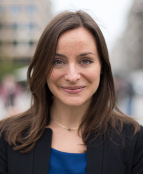
Marzia RANGO
IOM's Global Migration Data Analysis Centre (GMDAC), Germany
Marzia RANGO is a Research Officer at IOM’s Global Migration Data Analysis Centre (GMDAC), based in Berlin. Her work focuses on a range of issues pertaining to international migration data and research. She has conducted research and contributed to publications on a variety of topics including irregular migration to Europe, public attitudes towards migration, migration governance, global migration trends, and the potential of innovative sources of migration data for the analysis of migration-related phenomena. She has also been involved in capacity-building projects on migration data collection, analysis and management in developing countries, facilitating workshops for government representatives in several African countries. Prior to joining IOM’s GMDAC, she worked at IOM’s Research Unit in Geneva, and as a research assistant at the Refugee Studies Centre, University of Oxford, where she conducted field research on the political mobilization of the Rwandan diaspora. She also has previous experience as an MEP assistant at the European Parliament in Brussels, and as a consultant in the private sector. She holds an MSc in Development Studies from the London School of Economics and Political Science, and an MA in Economics from the Università Politecnica delle Marche, Ancona. She has a past in professional volleyball in Italy.
Topic presented: Migration Data, Trends and Governance in the Global Context
She explained current migratory trends, identified issues and gaps in collecting migration data and introduced main migration-related actions at international level including the UN’s Global Compact for Safe, Orderly and Regular Migration.
Publication: Facts about International Migration

Yolande DITEWIG
United Nations High Commissioner for Refugees (UNHCR), Hungary
Yolande DITEWIG is the Senior Regional Policy Officer at the United Nations High Commissioner for Refugees (UNHCR) Regional Representation for Central Europe where she heads the Regional Protection Unit. She has been working with UNHCR since 2005, both in Africa and the Middle East & North Africa region. She started working with UNHCR in Europe in 2014 and joined UNHCR’s Regional Representation for Central Europe, based in Budapest, in 2015. Prior to working with UNHCR, she worked with a law firm in Amsterdam, the Netherlands.
Topic presented: Overview of Contemporary Displacement and Current Situation with Regard to Forced Migration
After presenting the latest statistics on forced migration and countries hosting most of the forcibly displaced populations, she specifically zoomed in on the situation of displaced people from Syria, Somalia and Democratic Republic of Congo.
Video n. 2: High Commissioner’s visit to Syrian IDPs
Video n. 3: About Dadaab refugee camp
Video n. 4: Reception conditions in Angola
Publication: UNHCR Global Trends - Forced Displacement in 2016
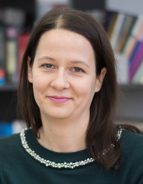
Zuzana STEVULOVA
Human Rights League, Slovakia
Zuzana STEVULOVA is a lawyer and director of Human Rights League Slovakia. She focuses on wide range of issues related to asylum, migration, and inclusion. In 2016, she has been awarded International Women of Courage Award for promoting rights of refugees and migrants in Slovakia.
Topic presented: Protection of Migrants' Rights and State Sovereignty (in Slovak)
Based on examples she demonstrated how protection of migrants supports or helps the state sovereignty. She then focused on migrants’ rights protection in the EU context, referring to the European Court of Human Rights’s decisions.
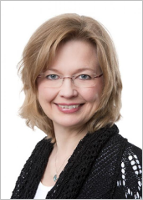
Ann-Charlotte NYGÅRD
European Union Agency for Fundamental Rights (FRA), Austria
Ann-Charlotte NYGÅRD works as the Programme Manager at the European Union Agency for Fundamental Rights (FRA). As a member of Asylum, Migration and Borders Section under the Freedoms and Justice Department, her areas of expertise are fundamental rights of irregular migrants and rights in the context of borders and visas. She is presently managing the project “Biometric data in large EU IT systems in the areas of borders, visa and asylum”. The project analyses the fundamental rights implications of collecting, storing and using biometric and other data in Eurodac, VIS (Visa Information System) and SIS II (Schengen Information System). Before joining the Agency she managed and coordinated capacity building and research projects as well as inter-governmental policy dialogues to strengthen migration governance at the International Centre for Migration Policy Development (ICMPD). She has also worked at the United Nations Centre for Human Settlements (UN-HABITAT) in Nairobi, Kenya and at the United Nations High Commissioner for Refugees (UNHCR). She holds a master’s degree in international relations, with a major in public international law and a specialisation in human rights law.
Topic presented: Existing Legal Entry Channels to the EU for Persons in Need of International Protection
She summarized all current regular channels to the EU for persons seeking international protection. These entry channels include refugee-related schemes and regular mobility schemes, in which private sponsorships can be an intrinsic element. She also pointed out the benefits and risks of such entry channels, while providing options to mitigate the identified risks.
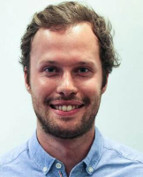
Ruben FIERENS
European Council on Refugees and Exiles (ECRE), Belgium
Ruben FIERENS is a legal officer at the European Council on Refugees and Exiles (ECRE) where he currently works on the AIDA-project. This project is a database containing information on asylum procedures, reception conditions, detention and content of protection across 20 European countries. He obtained master degrees in Criminal Law (Catholic University of Leuven), European Law (Paris Panthéon-Assas) and International Relations (University of Antwerp) and completed an internship at the Embassy of Belgium in Paris as well as at UNHCR in Brussels.
Topic presented: Untying the EU Resettlement Framework
He analyzed the new EU Resettlement Framework which is a legislative document proposed by the European Commission in July 2016 to govern resettlement in the EU. He identified advantages as well as challenges to address. He also described ECRE’s activities, particularly regarding advocacy at the European level.
Publication: Untying the EU Resettlement Framework

Kateřina Wolfová
Directorate-General for Migration and Home Affairs, European Commission, Belgium
Kateřina WOLFOVÁ works as a Policy Coordinator at the European Commission's Directorate-General for Migration and Home Affairs, based in Belgium.
Topic presented: Managed migration from the EU perspective to deal with the refugee crises in the world
She summed up steps that the European Commission took or is planning to propose in order to address the ongoing crises in the world. She elaborated more on the resettlement initiatives at European level in the past as well as on proposed EU Resettlement Framework.
Day 2, 4 July 2017
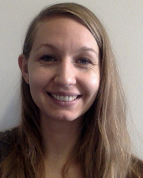
Evan EASTON-CALABRIA
Humanitarian Innovation Project, Refugee Studies Centre, University of Oxford, United Kingdom
Evan EASTON-CALABRIA is a researcher for the Humanitarian Innovation Project’s (HIP) research project on refugees’ bottom-up social protection. Her work with refugees began in Kampala, Uganda, in 2011 and has led her to research historical and contemporary refugee self-reliance assistance. While living in Uganda, she co-founded a grassroots organisation with refugees in Kampala that provides livelihoods training and support to urban refugees. This ongoing work has provided her with an invaluable insider lens on refugee-led initiatives. She is currently completing her PhD in International Development, tracing the changes and continuities of refugee self-reliance assistance and refugees’ involvement with development since the 1920s. In 2015 she was Principle Investigator for the National Geographic Young Explorer’s project ‘Innovation and the Art of Self-Reliance: Artistic Livelihoods of Kampalan Refugees’ and in 2015-2016 for the research project ‘Researching Refugee-Run Micro-Finance’ funded by the Humanitarian Innovation Fund. Through academic research and piloting grassroots self-reliance projects with refugee communities in Kampala, she aims for her work to contribute to Refugee Studies and inform contemporary refugee policy on livelihoods and self-reliance.
Topic presented: From 'Burdens' to 'Benefits' - The Under-explored Roles of Refugees
She introduced the main streams of the Humanitarian Innovation Project (www.oxhip.org), while focusing on bottom-up innovations, refugee economies and popular myths surrounding them. She described the discrepancies between refugee assistance provided in camps and in urban areas where more than half of refugees live and whose number will continue to rise in the future. Based on examples from Uganda and Kenya, she discussed the challenges in refugee self-reliance assistance and presented several refugee-led organisations and initiatives in this regard.
Project: Humanitarian Innovation Project at the Refugee Studies Centre, University of Oxford
Publication: Refugee Economies - Rethinking Popular Assumptions
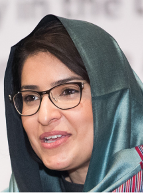
MARIAM SAFI
Organization for Policy Research and Development Studies (DROPS), Afghanistan
Mariam SAFI is the founding Director of the Organization for Policy Research and Development Studies (DROPS), a leading think-tank in Afghanistan committed to strengthening democratic ideas and values through its policy-oriented research, training and advocacy programs that aim to provide policymakers with sound alternative solutions to national issues and to create a platform to increase women’s voices in policy discourse. She devotes herself also to the migration-related topics. In 2017, she contributed to the publication Escaping the Escape: Toward Solutions for the Humanitarian Migration Crisis with a chapter on Afghanistan. She was honored by the Diplomatic Courier media network as one of their Top Global Women in 2014 for her contribution to the research community in Afghanistan. She is a member of the Afghanistan Policy Group, a Senior Fellow at the Institute of National Security Studies Sri Lanka, an alumni at the Near East South Asia Center for Strategic Studies, and a local peace-building expert for Peace Direct. She holds an MA in International Peace Studies from the United Nations-mandated University for Peace in San José, Costa Rica.
Topic presented: Current Migration Patterns and Policy Challenges in Afghanistan
She summarized migration history in the country during the last 16 years and explained the background of several migration waves since 2005. She then provided basic characteristics of Afghan migrants since 1980’s and listed current push and pull factors which are motivating migration out of and into the country, as well as current migration strategies and policies. She also identified future trends and highlighted the ongoing return migration from Pakistan and Iran.
Video n.1 (19:33-21:08): Hopeless and broke, some Afghan migrants return from Europe
Video n.2 (39:36-41:19): The Dream of A Foreign Land - documentary trailer
Initiative/campaign: Afghanistan Needs You
Publication: Escaping the Escape - Toward Solutions for the Humanitarian Migration Crisis
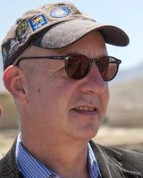
Richard Danziger
International Organization for Migration (IOM), Senegal
Richard DANZIGER is the Regional Director for West and Central Africa of the International Organization for Migration (IOM) based in Senegal which covers 23 countries and 5 regional economic communities. Since joining IOM at 1994, he has served as Chief of Mission in Pakistan, Afghanistan, Indonesia and Sri Lanka & the Maldives and in different capacities in Rwanda, Democratic Republic of Congo, Philippines, Israel and the Occupied Territories. From 2005 to 2010, he headed IOM’s Counter Trafficking Division overseeing human trafficking projects and research throughout the world. He was a member of the World Economic Forum’s Council on Illicit Trade and Organized Crime which he chaired during the period 2010 - 2011. He graduated from the University of Virginia where he studied drama and comparative literature.
Topic presented: Vulnerabilities of Migrants Resulting from the Lack of Legal Pathways or Instruments - Experiences from Afghanistan and the African Continent
He focused on various challenges which migrants face when they move across diverse African countries including torture and human trafficking. He also explained migratory routes leading migrants of different nationalities through the Sahara desert onto the Mediterranean Sea. He also reiterated challenges which thousands of returning Afghans from Pakistan face, showing importance of having legal channels available in countries anywhere in the world.
Video n.1: Wallah, je te jure
Video n.2 (43:21 - 45:46): A Family's Journey Home to Afghanistan and Uncertainty
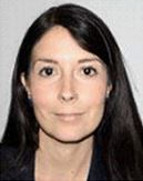
Eurídice MÁRQUEZ
United Nations Office on Drugs and Crime (UNODC), Austria
Eurídice MÁRQUEZ is a Crime Prevention and Criminal Justice Officer in the Human Trafficking and Migrant Smuggling Section at United Nations Office on Drugs and Crime (UNODC) Headquarters. She conducts assessments and capacity building training, engages in policy developments as well as contributes to programme development, management, monitoring and evaluation of the UNODC Global Programmes against Trafficking in Persons and the Smuggling of Migrants. Prior to joining UNODC over three years ago, she worked for more than 6 years as a Regional Migrant Assistance Coordinator and Counter-Trafficking Coordinator at the International Organization for Migration's Regional Offices in Brussels and Vienna, respectively. She also worked at Spanish and Moroccan Human Rights NGOs. She studied Political Science in Spain and France and holds a Master's degree in Political Science specializing in European Union Affairs from the Université Libre de Bruxelles. Besides her mother tongue (Spanish), she is fluent in English, French and German.
Topic presented: Violence against Migrants, Migrant Smuggling and Human Trafficking
She explained the difference between the migrant smuggling and trafficking in human beings, to which different response is needed even if these two crimes overlap to some extent. Furthermore, she identified the global trends and challenges, and based on Lampedusa case study showed many complexities when it comes to mixed migration flows.
Video (24:09-26:41): Personal testimonies of victims of human trafficking (Teodora's story, 2:00-4:50)
Publication: 2016 UNODC Global Report on Trafficking in Persons
Publication: UNODC's Catalogue of Materials - Global Programme against Trafficking in Persons & Global Programme against Smuggling of Migrants
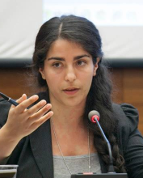
Zahra ALBARAZI
Institute on Statelessness and Inclusion, the Netherlands
Zahra ALBARAZI is a Senior Researcher at the Institute on Statelessness and Inclusion based in the Netherlands. She specialises on the nexus between statelessness and forced displacement, and the interlink between discrimination and statelessness, including work on gender inequality in nationality law. Geographically, her work has focused mainly on statelessness and nationality in the Middle East and Africa region. Alongside her work at the Institute, she is enrolled as a PhD researcher at Tilburg Law School. She is also a Board member of the Syrian Legal Development Programme. She has been working on the issue of statelessness since 2010, and has been involved in conducting studies on statelessness for the United Nations High Commissioner for Refugees (UNHCR), Women's Refugee Commission (WRC), International Rescue Committee (IRC), Norwegian Refugee Council (NRC), the Open Society Justice Initiative and Amel House of Human Rights. She holds an LLM in International Law from Leeds University, and enjoys teaching and training on the issue of statelessness.
Topic presented: Forced Displacement as a Cause and Consequence of Statelessness (online lecture)
She provided basic overview of statelessness as a concept, and examples of migration and statelessness nexus (irregular migration, children born abroad, protracted migration, forced migration, detention).
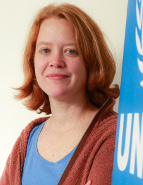
Inge Sturkenboom
United Nations High Commissioner for Refugees (UNHCR), Belgium
Inge STURKENBOOM works since 2012 on statelessness in Europe as a protection officer with United Nations High Commissioner for Refugees (UNHCR). She is based with the UNHCR Bureau for Europe in Brussels and works with UNHCR’s regional and country offices on addressing statelessness throughout the region to achieve the aims of UNHCR’s Global Campaign to End Statelessness by 2024. She also engages with regional stakeholders, such as the institutions of the OSCE, the Council of Europe and the EU, and the European Network on Statelessness. Prior to her assignment in Belgium, she worked with UNHCR in West Africa and Southeast Asia and for Amnesty International and the Ministry of Foreign Affairs in the Netherlands. She has a master’s degree in international law from Leiden University, the Netherlands.
Topic presented: Forced Displacement as a Cause and Consequence of Statelessness
Together with Zahra Albarazi, she explained how forced displacement can be a cause as well as consequence of statelessness or in other words, how migration can reinforce the risk of statelessness. She also concentrated on ways to prevent statelessness and promoted the “I Belong” campaign to end statelessness which was launched in 2014 by the UNHCR.
UNHCR “I Belong” campaign: www.unhcr.org/ibelong/
Day 3, 5 July 2017
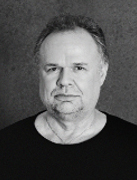
Kilian Kleinschmidt
Innovation and Planning Agency (IPA), Austria
Kilian KLEINSCHMIDT is an international networker, humanitarian and refugee expert with over 25 years of experience in a wide range of countries, emergencies and refugee camps as United Nations official, Aid worker and Diplomat. He is the founder and CEO of the startup Innovation and Planning Agency (IPA), which aims to connect marginalised parts of the globe with the technological resources and know-how needed to catalyse change. He became known as the Mayor of Za'atari when he managed the refugee camp of Za'atari in Northern Jordan from 2013-2014 on behalf of UNHCR. Now he is challenging the Humanitarian Aid Sector through a range of new and unorthodox partnerships, technologies and ways of financing. He is advisor to governments, international organizations as well as social businesses, and a renowned public speaker at conferences, TEDx and other events.
photo: Portrait KK10 02.16 ©Mirjam Knickriem
Topic presented: From Charity to Equality – Aid in the 21st Century
He shared historical perspective on providing humanitarian assistance and showed why humanitarian assistance should transcend from charity to equality principle. He explained the living conditions in the biggest refugee camps in the world and defined not only challenges, but also opportunities arising from the situations caused by forced displacement.
Video n.1 (45:00-49:24): Economics of a Refugee Camp
Video n.2 (01:14:00)-: Local Government Resilience Programme Jordan
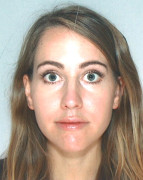
Sarah KNIGHT
International Organization for Migration (IOM) Geneva Headquarters, Switzerland
Sarah KNIGHT is a Senior Resettlement Assistant with the International Organization for Migration (IOM). She works for the Resettlement and Movement Management Division (RMM) within the Department of Operations and Emergencies (DOE) at IOM Headquarters in Geneva, Switzerland. RMM ensures that the Organization is equipped to provide safe and dignified movement for persons who require international migration assistance. In addition, RMM coordinates with other IOM areas of work essential to refugee-centric resettlement programming such as health and addressing integration.
Topic presented: Resettlement: a Vital International Protection Tool
She introduced resettlement as one of durable solutions for persons forcibly displaced from countries in protracted crises. She talked about basic resettlement framework, current statistics and several processing stages until the person is actually resettled.
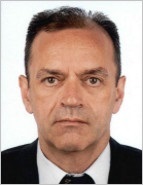
Renald GRÉGOIRE
Embassy of Canada, Austria
Renald GRÉGOIRE has been assigned as the Immigration Counsellor and Programme Manager at the Embassy of Canada in Vienna, Austria since August 2014, with regional responsibilities for 13 countries: Austria, Bosnia and Herzegovina, Croatia, Czech Republic, Germany, Hungary, Kosovo, Macedonia, Montenegro, the Netherlands, Serbia, Slovakia and Slovenia. He joined the Canadian Foreign Service in 1990. He was assigned as Immigration Officer at the Embassy of Canada in Haiti (1990-1992), the Philippines (1992-1994), Hong Kong (1994-1995), and Serbia (1995-1997), and as Counsellor and Program Manager in Argentina (1997-2001). From 2001 to 2004, he was assigned in Ottawa at the Department of Citizenship and Immigration as Deputy Director of the Human Resources Division and then as Deputy Director of the Control Division. Later, he served as Immigration Counsellor and Programme Manager for the Embassy of Canada in Japan (2004-2008), South Africa (2008-2011) and Romania (2011-2014). Over the course of his career, he also served on temporary duty in Tirana during the Kosovo armed conflict in 1999 and in Damascus during the Lebanese evacuation in 2006. He holds a Bachelor degree in History from Université Laval and in Administration from Université du Québec à Hull.
Topic presented: Canadian Private Sponsorship in Refugee Resettlement: Benefits and Lessons Learned
He analyzed Canada’s two refugee programs: Resettlement from Overseas and In-Canada Asylum System, both offering a path to permanent residence and citizenship. Afterwards, he focused on three program streams within the Canadian refugee resettlement: Government-Assisted Refugees, Privately Sponsored Refugees, and Blended Visa Office-Referred Refugees. He also described Operation Syrian Refugees through which Canada welcomed more than 25,000 Syrian refugees between December 2015 and February 2016. As for the private sponsorship program, he presented good practices and lessons learnt, with practical examples provided.
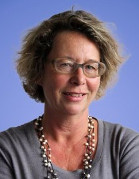
Petra Hueck
International Catholic Migration Commission (ICMC) Europe, Belgium
Petra HUECK is the Director of the International Catholic Migration Commission (ICMC) Europe in Brussels, Belgium. Since taking up this role in 2005, she has been responsible for developing advocacy, research and program activities in the area of European Union migration and asylum. In particular she co-developed with IOM and UNHCR the European Resettlement Network (ERN) (www.resettlemement.eu) and the SHARE network (http://www.resettlement.eu/page/welcome-share-network), a network of European regional and local authorities and their civil society partners committed to refugee resettlement, protection and integration. She has also co-authored several publications such as Welcome to Europe: a comparative guide to resettlement in Europe and 10 percent of refugees from Syria: Europe’s resettlement and other admission responses in a global perspective. Prior to joining ICMC, she has worked for several years as a Program Manager for the United Nations Development Programme (UNDP) in Latin America and the Caribbean. She holds a degree in International Law from the University of Utrecht, as well as a degree in Social and Cultural Sociology from the University of Leuven.
Topic presented: Emerging Community Based Sponsorship Programmes in Europe - New Partnerships between Government and Private Actors to Provide Legal Access and Inclusion
She summed up programmes in European countries which are based on a sponsorship scheme. She also presented activities of the European Resettlement Network, a platform to exchange information and know-how on resettlement priorities, processes and practices.
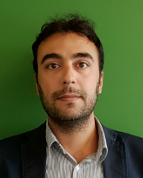
Vittorio Furci
ICF (EMN SERVICE PROVIDER), BELGIUM
Vittorio FURCI works as a Consultant with ICF International, the European Migration Network (EMN) service provider. He has experience in the field of fundamental rights, asylum and migration, and worked on several studies including the evaluation of the European Return Fund (2011 - 2013) and the evaluation of Dublin III Regulation. In the context of the EMN, he contributed to studies on Resettlement and Humanitarian Admission Programmes in Europe, Changes in Immigration Status and Purpose of Stay, Voluntary Return as well as Integration of Beneficiaries of International Protection. He holds a Master’s Degree in International Law and Criminal Justice, with majors in International Criminal Law, as well as a Master’s Degree in Social Psychology.
Topic presented: Resettlement and Humanitarian Admission Programmes in Europe – what works? – outcomes of the EMN Synthesis Report
He summarized the outcomes of the EMN Synthesis Report on Resettlement and Humanitarian Admission Programmes in Europe. The report was compiled in 2016 based on national contributions of EU Member States and Norway and among others contains the list of challenges to setting up and implementing resettlement programmes and schemes.

